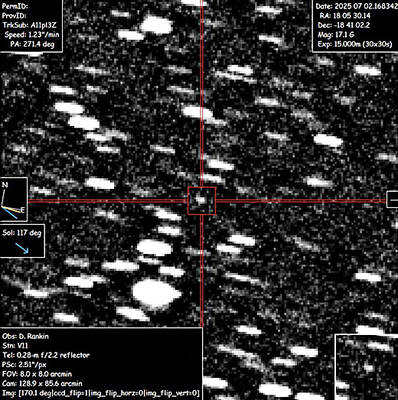A fisherman who says he drifted at sea for more than a year has finally made it home to El Salvador, exhausted and speechless.
Jose Salvador Alvarenga tried to address a media throng waiting at the airport, eager to fill in details about what many people have viewed as a fishing tale: A man tossed 10,500km across the Pacific in a small boat from Mexico to the Marshall Islands, surviving on raw fish, turtles and bird blood.
However, when handed the microphone at the San Salvador airport late on Tuesday, Alvarenga could only put his hands to his face, appearing to cry.

Photo: AFP
Wearing a dark blue T-shirt, khaki trousers and white tennis shoes, the 37-year-old left the airport in a wheelchair and was taken by ambulance to the National Hospital San Rafael, where he was greeted by a daughter who did not remember him and a mother who had thought he was dead because he left El Salvador years ago.
As he was unloaded from an ambulance, he tried again to answer questions shouted from the crowd: “How do you feel?”
“Happy to have arrived,” he said.

Photo: AFP
Alvarenga’s story stunned the world when he washed up on the Ebon atoll almost two weeks ago, appearing robust and barely sunburned after more than a year at sea. However, he had started out a much larger man, and doctors found that he was swollen and in pain from the ordeal, suffering from dehydration.
The journey back home after a week of rest and medical treatment in the Marshall Islands capital of Majuro was marked by long layovers in Honolulu and Los Angeles, where doctors checked his health and ability to continue the trip.
“I’m so happy to know he’s alive, that he returned. I want to give him a hug,” said Emma Alvarenga, an aunt who arrived at the airport to see him, but was left outside the VIP lounge where he was taken.
His father, Jose Ricardo Orellana, 65, who owns a store and flour mill in the seaside Salvadorean town, has said his son first went to sea at age 14.
“The sea was his thing,” Orellana said last week after learning of Alvarenga’s story.
Maria Julia Alvarenga, 59, said her son always had unusual strength and resilience.
His 14-year-old daughter, Fatima, has made an archway of palms for the front door of the family home in the fishing village of Garita Palmera and hung a sign proclaiming “Welcome.” She did not remember ever seeing her father, who left El Salvador to fish in Mexico when she was just more than a year old.
Alvarenga’s incredible tale left many skeptical, but experts said it would be humanly possible for him to survive.
Over several days, details emerged that seemed to corroborate the horrible journey.
Alvarenga said he worked in a fishing village on the Pacific coast of Mexico’s southern Chiapas state, where he embarked. A man with his nickname, “Cirilo,” had been registered as missing with civil defense officials there. They said a small fishing boat carrying two men, the other named Ezequiel Cordoba, disappeared during bad weather on Nov. 17, 2012, and no trace of them or the craft was found during an intense two-week search.
Cordoba died after about a month when he could not eat the raw fish and turtles, Alvarenga has said.
Photos from the Marshall Islands published by Britain’s Telegraph newspaper showed the boat that Alvarenga purportedly arrived in. It bore the hand-lettered name of a Chiapas fishing cooperative, Camaroneros de la Costa, for which Alvarenga said he worked in Costa Azul near Tonala.
The photos also showed a large plastic cooler that Alvarenga purportedly used to shelter himself from the sun and sea.
“The story of Jose is one of faith, but also of a fight to live,” the Salvadoran minister of foreign affairs said on Tuesday night.
“A story of solidarity and reunions,” he added.

Two former Chilean ministers are among four candidates competing this weekend for the presidential nomination of the left ahead of November elections dominated by rising levels of violent crime. More than 15 million voters are eligible to choose today between former minister of labor Jeannette Jara, former minister of the interior Carolina Toha and two members of parliament, Gonzalo Winter and Jaime Mulet, to represent the left against a resurgent right. The primary is open to members of the parties within Chilean President Gabriel Boric’s ruling left-wing coalition and other voters who are not affiliated with specific parties. A recent poll by the

TENSIONS HIGH: For more than half a year, students have organized protests around the country, while the Serbian presaident said they are part of a foreign plot About 140,000 protesters rallied in Belgrade, the largest turnout over the past few months, as student-led demonstrations mount pressure on the populist government to call early elections. The rally was one of the largest in more than half a year student-led actions, which began in November last year after the roof of a train station collapsed in the northern city of Novi Sad, killing 16 people — a tragedy widely blamed on entrenched corruption. On Saturday, a sea of protesters filled Belgrade’s largest square and poured into several surrounding streets. The independent protest monitor Archive of Public Gatherings estimated the

Irish-language rap group Kneecap on Saturday gave an impassioned performance for tens of thousands of fans at the Glastonbury Festival despite criticism by British politicians and a terror charge for one of the trio. Liam Og O hAnnaidh, who performs under the stage name Mo Chara, has been charged under the UK’s Terrorism Act with supporting a proscribed organization for allegedly waving a Hezbollah flag at a concert in London in November last year. The rapper, who was charged under the anglicized version of his name, Liam O’Hanna, is on unconditional bail before a further court hearing in August. “Glastonbury,

FLYBY: The object, appears to be traveling more than 60 kilometers per second, meaning it is not bound by the sun’s orbit, astronomers studying 3I/Atlas said Astronomers on Wednesday confirmed the discovery of an interstellar object racing through the solar system — only the third-ever spotted, although scientists suspect many more might slip past unnoticed. The visitor from the stars, designated 3I/Atlas, is likely the largest yet detected, and has been classified as a comet, or cosmic snowball. “It looks kind of fuzzy,” said Peter Veres, an astronomer with the International Astronomical Union’s Minor Planet Center, which was responsible for the official confirmation. “It seems that there is some gas around it, and I think one or two telescopes reported a very short tail.” Originally known as A11pl3Z before